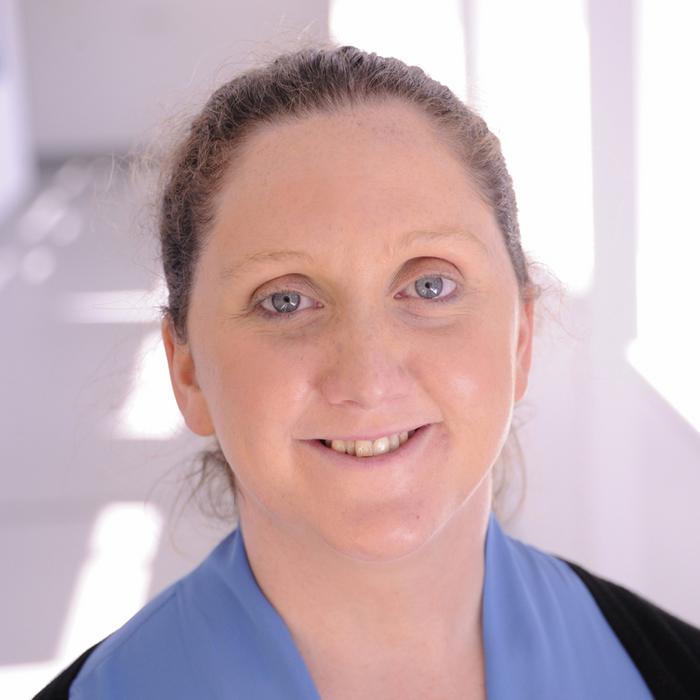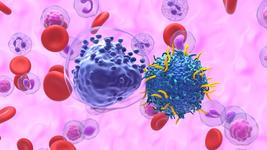Combinatorial CRISPR Screens Reveal Vulnerabilities in Cancer Genomes
CMN Intelligence - The World’s Most Comprehensive Intelligence Platform for CRISPR-Genomic Medicine and Gene-Editing Clinical Development
Providing market intelligence, data infrastructure, analytics, and reporting services for the global gene-editing sector. Read more...

In the functional genomics session of the inaugural CRISPR Medicine Conference, GSK’s scientific director of target discovery, Fiona Behan, PhD, discussed her work in oncology target discovery.
Behan recently spoke directly with CRISPR Medicine News about her career, what motivates her, and how her team is using machine learning to harness the power of combinatorial CRISPR screens.
The need for targeted therapies: Behan’s North star
For Behan, her work in cancer research is deeply personal. When Behan was in her late teens, her mother was diagnosed with cancer and received chemotherapy. Although the treatment worked, the devastating side effects combined with the lack of other treatment options at the time drove Behan to work in target discovery.
Almost 20 years later, Behan’s mother was diagnosed with a different type of cancer, and doctors discovered a surprising long-term effect of the original chemotherapy.
»Her heart muscles had been depleted. So in everyday life she was totally fine, but it meant she wasn't eligible to get chemotherapy a second time - she just wouldn't survive the treatment,« Behan said.
Behan’s mother passed away from cancer five years ago. She said this experience became her North star, motivating her on a daily basis and keeping things in perspective. Behan’s hope is that her research, and that of others, will eventually lead to the creation of treatments that will reduce the need for toxic chemotherapy regimes.
»A tool like CRISPR can bring us more precision medicine and targeted therapies, where we're only targeting whatever is driving the cancer, as opposed to every cell that's dividing in the body... Getting [targeted therapies] into the clinic is the important thing. That's why I made the jump from academia to industry,« she added.
During her time as a postdoctoral researcher at the Sanger Institute in Cambridge, Behan played a key role in a massive collaborative effort with the Broad Institute, generating experimental data for cancer dependency mapping. Her own career progression paralleled the advances in CRISPR technology.
»As the technology got more advanced, we were able to do larger scale [experiments] and we moved from looking at one cancer to all cancers at a genome level,« Behan remarked.
Combinatorial screens reveal synthetic lethality and drivers of cancer
At GSK, Fiona’s team are harnessing the power of combinatorial CRISPR screens as a discovery tool, improving our understanding of the complexities of cancer genomes, identifying drivers of cancer, and homing in on potential therapeutic targets. This includes an exploration of synthetic lethality in cancer cells: in a healthy cell, there are many pairs of genes or pathways that are redundant, but in cancer cells, one of the genes in a pair may carry a mutation, leaving only one gene intact and functional.
»A lot of the time, the patient has acquired a mutation in a gene that gives [the cancer] some kind of competitive advantage,« Behan explained, »But sometimes with that competitive advantage, there's also dependencies associated with loss of function of that gene.«
This means that targeting a redundant gene or pathway could potentially kill cancer cells while leaving healthy cells intact - an attractive avenue for potential therapies, like small molecule inhibitors.
Because cancer is so complex, Behan says, straightforward genome-wide CRISPR screens don’t quite cut it for this type of research. Combinatorial CRISPR screening, on the other hand, can identify more complex predictors of cancer that single gene knockouts can’t.
»Instead of one gene being mutated in the patient, that might be a panel of three or four that are driving the disease. So if we can recapitulate that in a cell line in the lab we can open the door to more targets,« she explains.
While identifying a single gene target is like looking for a needle in a haystack, Behan says CRISPR has provided the giant magnet required to do just that. Combinatorial screening is significantly more complex.
»Once you move into the combinatorial space, and you've got two or three genes, it’s like a field of haystacks, and you don't even know which is the right haystack to look in,« Behan added.
This is why Behan works extremely closely with the artificial intelligence and machine learning (AIML) department at GSK. Scientists in this team build and train machine learning models using an array of inputs, such as the cancer dependency map that Behan previously worked on at the Sanger Institute, the cancer genome atlas, and patient data available in the public domain. The models can then make predictions about pairs of genes that interact, potentially driving cancer and offering novel therapeutic targets.
»So instead of me looking at a field of haystacks, they point out a haystack for me to look at, which experimentally is a lot more feasible for me,« Behan commented.
Target validation and clinical translation
The project is still in its early days, but Behan and her team are constantly thinking about how they can ensure the science they’re doing is translatable. To this end, they have developed an extensive validation process for the targets they identify, including the use of organoids generated from the tumour cells of real patients.
However, the validation process does not involve performing CRISPR knockouts of those targets – perhaps counterintuitively, none of the targets Behan and her team identify will be used to create CRISPR-based medicines.
A surprise to many in the field, GSK announced in 2023 that they had axed their entire cell and gene therapy programme, instead focusing on oligonucleotide-based strategies to treat genetic diseases. For Behan’s work in the cancer space, the shift away from cell and gene therapies means using small molecule drugs to inhibit the targets she identifies, and using other methods to validate them.
»[for target validation] we would use different CRISPR tools, like CRISPR inhibition, where we're suppressing the expression of a gene rather than completely switching it off… I'm quite excited by some of the more inducible CRISPR systems, where you can turn it on and off or repress it on and off at a certain time, just to try and mimic what would happen with a small molecule,« Behan concluded.
Rebecca Roberts is a molecular biologist, science writer/communicator, and scientific marketing professional based in Queensland, Australia.
To get more CRISPR Medicine News delivered to your inbox, sign up to the free weekly CMN Newsletter here.
Tags
CLINICAL TRIALS
Sponsors:
Base Therapeutics (Shanghai) Co., Ltd.
Sponsors:
Base Therapeutics (Shanghai) Co., Ltd.







